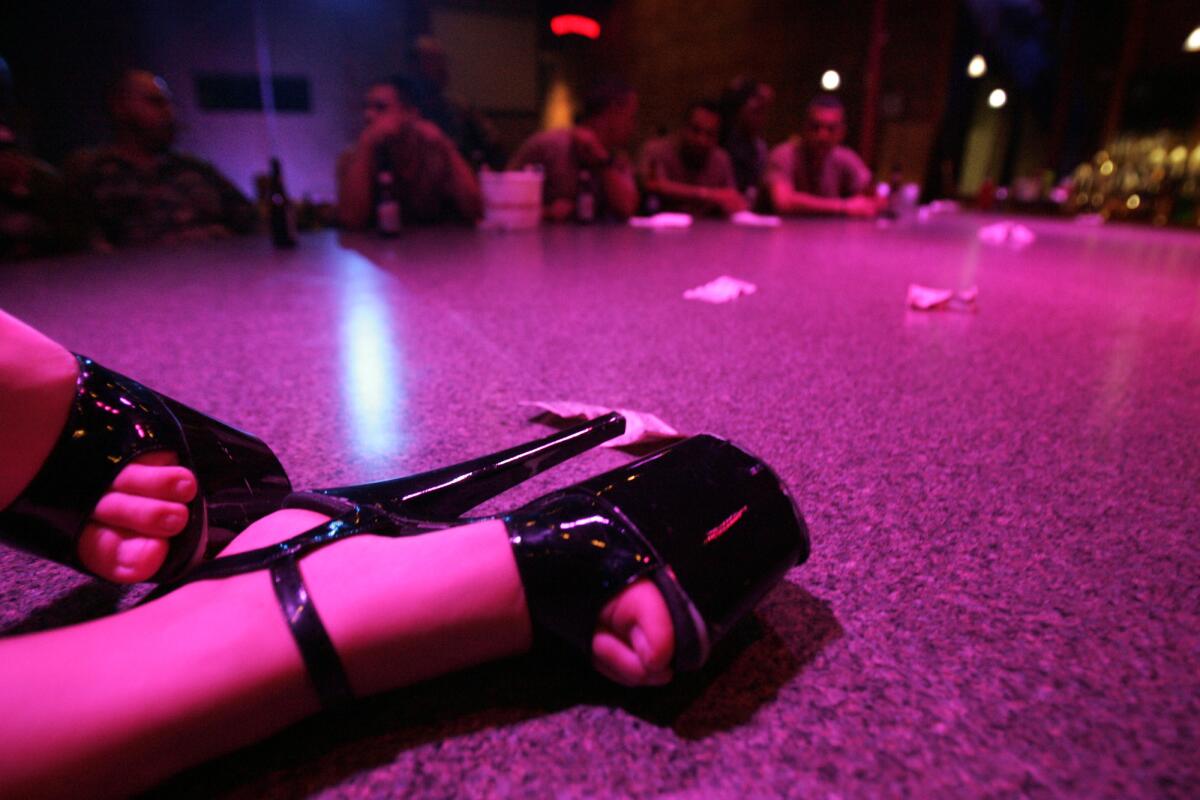Jury awards $6.5 million to exotic dancers over tip dispute

- Share via
Nearly 250 exotic dancers were awarded $6.5 million after accusing a City of Industry strip club of taking their wages after they performed private dances for customers.
On Wednesday, a Los Angeles County judge announced a jury’s decision to side with the dancers and give them a significant payout.
“This money is not a windfall,” said the dancers’ attorney, K.L. Myles. “This is money that they earned that was taken from them.”
The nude, semi-nude and bikini dancers argued that management at Paradise Showgirls on Valley Boulevard illegally kept fees for services they performed, according to their class-action lawsuit filed in Los Angeles County Superior Court.
The 249 dancers say they were employees, not independent contractors, and were entitled to all wages, including tips.
Any tips earned, they say, were unlawfully shared with management and other employees, according to the lawsuit, led by exotic dancer Quincece Hills.
The plaintiffs said in the lawsuit, “Current employees are often afraid to assert their rights out of fear of direct or indirect retaliation.”
The law allows exotic dancers to accept money handed to them by customers as a tip or gratuity and for their sole purpose.
“We had a very thoughtful jury and the jury followed the law,” Myles said. “We believe it was a just verdict.”
Paradise’s attorney, Ernest Franceschi, said his client was entitled to the dancer’s wages because the dancers were essentially renting space in the club to perform their services
“They want all the revenue and don’t want to contribute to any of the overhead,” he said.
The dancers, he said, were seeking $13.1 million.
Franceschi said his client planned to appeal because the labor law applied to this case is unconstitutional.
“It’s an irrational classification,” he said. “We believe it violates equal protection.”
Franceschi said the strip club operation was supposed to work like this: A dancer charges $40 for a lap dance, with $14 going to the club and the dancer keeping the remaining $26.
“VIP” dances are normally performed in private rooms and the rate is $300, of which $200 the dancer keeps, he said.
The fees paid to the club cover staffing, security, advertising and marketing, he said.
But Myles said that’s not how the law works. She said the law was specifically designed to protect exotic dancers and their earnings.
The club, she said, has continued to take dancers’ earnings and hasn’t changed its policies, so she is seeking injunctive relief to stop them.
For breaking news in California, follow @VeronicaRochaLA.
More to Read
Sign up for Essential California
The most important California stories and recommendations in your inbox every morning.
You may occasionally receive promotional content from the Los Angeles Times.













